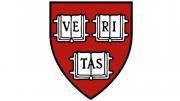In 2020, fifteen years after the Faculty of Arts and Sciences (FAS) adopted the current form of its formal tenure procedures, FAS dean Claudine Gay announced a review of the pressure-filled process, which has sparked controversy in recent years.
The 106-page report, released on Tuesday afternoon, presents a mixed review of the process. On the more harrowing side, professors interviewed—both with and without tenure—described an opaque procedure in which tenure-track professors go for years without much feedback on how likely they are to receive tenure during their seventh year on the Harvard faculty. Said one recently tenured faculty member: “No one that I had close contact with—mentors, department chairs, colleagues, even divisional deans—could say anything meaningful or reliable to me about what would make my case stronger or more likely to succeed because they themselves did not really know.” Another tenured professor said, “Right at the very end, after you’ve worked for six and a half or seven years, there are all these elements where something could go off the rails, that you have no control over.…So if someone has a different offer from a different institution, I feel I have to recommend they take that offer.”
Acknowledging that some of the accounts described in the report “may cause some to think that the system is fundamentally ‘broken’ and in need of wholesale replacement,” the Tenure-Track Review Committee (TTRC) reached a different conclusion. “[I]n some ways, the FAS tenure-track system works well,” the report states. “We believe the system is structurally sound: it has checks and balances…and is designed to ground promotion decisions in ample evidence.”
The group pointed to FAS’s tenure rates as a sign that the current system works. From academic year 2009-2010 through 2019-2020, 70 percent of associate professors who went through the tenure review process were granted tenure. (Of the 239 assistant professors who stood for their associate promotion review, 97 percent were successful.)
The report includes a detailed overview of the current tenure system, evaluating the length of time professors spend before the tenure process (typically held in a professor’s seventh year), assessments up to and including the tenure-review process, and the role of advising and teaching in tenure candidacies. Ultimately, the recommendations of the TTRC, chaired by Agassiz professor of zoology Hopi Hoekstra, centered around aligning different facets of the process.
One key suggestion was to make the goals of the second-year review, associate review, and tenure review more consistent. When considering a professor’s promotion to associate professor during year four, faculty members decide whether the candidate is likely tenurable “at a major research institution within three to five years.” The TTRC asks whether a “major research institution” should be replaced with “Harvard.” The result could be fewer candidates advancing to associate professor, but also a clearer picture of whether a candidate is on pace for tenure at Harvard.
Another recommendation was to standardize the questions that faculty members’ peers answer in their letters. Instead of having to write an open-ended letter about a scholar’s strengths, letter-writers (from outside and within the University) would receive prompts that directly relate to qualities the tenure committee is trying to assess—reducing the possibility of an inadvertent and costly omission. “We also recommend that Harvard letter-writers ask whether the candidate should be tenured now at Harvard,” the committee wrote.
The committee also urged that the Paulson School of Engineering and Applied Sciences (SEAS) and FAS give tenure candidates clearer guidance on the effect of teaching, advising, and mentoring on their candidacies. And, instead of relying on student evaluations, the committee recommends a more holistic review of a candidate’s teaching, including more classroom observations and syllabi evaluations.
In an email to faculty, Dean Gay said that FAS will begin work this fall on incorporating the group’s recommendations. “I expect implementation to take place over the next two years,” she wrote. While it is not yet clear which recommendations will ultimately be included, Gay stressed the importance of working together to improve the tenure process. “Strengthening this system,” she wrote, “is one of the most important things that we can do."









